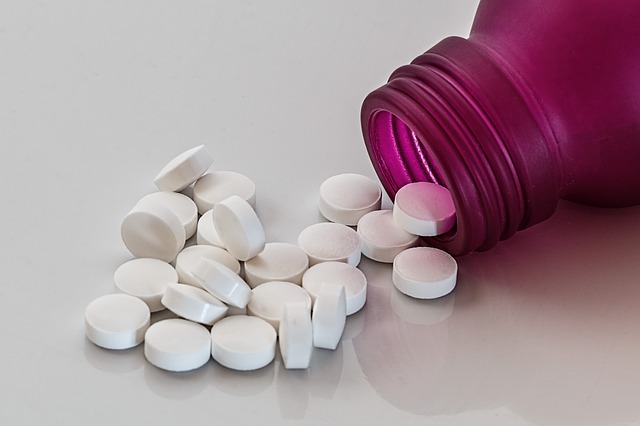Having the wrong information can be very harmful, it can make you practice very dangerous habits that you think are okay, also it can make you reject scientifically-proven truths just because they sound strange or different from what you’ve heard everyone around say.
We are in the information age, and it is important to know what is true, and what is not. In the media, there’s a lot of buzz about ‘fake news’. While there’s a general outrage against publications that produce false information about celebrities and politics, we should not neglect the ‘fake health information’ that often gets viral.
In this article, we will be discussing and exposing some health myths that you probably believe already. Some of these are very common in Nigeria, so you should pay attention while we debunk them one after the other.
Myth #1: You Can Detoxify Your Body
A common trend that’s been going on for the last few years is the use of certain ‘teas’ or ‘juices’ to ‘cleanse’ the body of many unnamed toxins. This isn’t true, it is all scientific nonsense. Ask any doctor around you, there is no scientific or medical basis of the thought that our bodies accumulate toxins that can be cleaned by a specific diet or supplement. Some people even go as far as undergoing some procedures to cleanse their intestines by irrigating it with water.

These practices can be harmful, washing the intestines with water can remove helpful bacteria that reside there to help in the normal digestive process.
The body has its own inbuilt defense system against toxins, this is why you have liver and kidneys. The liver and kidneys help to take away potentially harmful chemicals like alcohol and other drugs without needing us to take special tablets. So, don’t waste your money on something your body readily handles.
Myth #2: Everyone Needs Dietary Supplements
This statement is very far from the truth. You actually don’t need to take daily supplements to stay healthy. Supplements are supposed to help correct deficiencies of specific nutrients or fill in gaps in people who can not take in the necessary nutrients to stay healthy.
For example, elderly people are more prone to osteoporosis, a condition that may make them fracture their bones when they have minor falls. So, doctors could prescribe calcium and vitamin D tablets to conserve the integrity of their bones.
Also, pregnant women need iron and folic acid tablets to support the development of a foetus. Other than these and some specific cases where they are needed, you shouldn’t waste your cash on buying supplements that promise to lower cholesterol or treat high blood pressure, they can’t do that.
Also, please keep in mind that supplements are not regulated by the government, so manufacturers sometimes make very false claims that are not tested.
Myth 3: Typhoid Fever Is As Common As Malaria
Most people who come down with a fever in Nigeria often blame two diseases: typhoid and malaria. The truth is typhoid fever is far less common than people realize. The reason why there’s so much buzz about it is that people rely on an outdated test called ‘widal test’ to judge whether they have typhoid, whereas the test itself is very unspecific and requires subsequent testing about a week after the initial test to make a diagnosis of typhoid fever. In fact, the test is clearly not recommended for the diagnosis of this disease, it produces a lot of false positive results.
Malaria is still the number one reason why people have fevers in Nigeria, and we need to stop taking antibiotics after every Widal test, because the test result is often wrong. Malaria is 10 times more likely to be the cause of a fever than typhoid.
Myth 4: You Should Take Antibiotics For A Cold
If you are one of those that take antibiotics when you have a runny nose or cough, you are doing the wrong thing. The truth is that common cold (which causes symptoms like cough, catarrh and sore throat) is usually caused by viruses like the rhinovirus, and like most viral infections is self-limiting. What this means is that the symptoms will go away after some days even if you don’t take any medications. Antibiotics, in particular, have no place in the treatment of common cold as they are used for bacterial infections and won’t work for viral infections.
Taking antibiotics for a cough or catarrh can increase the likelihood of the development of antibiotic resistance– a circumstance when bacteria that are usually susceptible to common antibiotics are unaffected by these medications.
Myth 5: You Can Live Very Healthy Even If You Don’t Exercise
Lack of physical exercise is one of the major risk factors for the development of many diseases like heart attack, stroke, obesity, and arthritis. These diseases can be deadly or can cause a significant decrease in the quality of life. So, taking some minutes every week to exercise or ensuring you maintain a good physically active life like walking or running can do a lot to ensure that your joints don’t get arthritis, requiring you to have to use equipment like teak shower chairs and transfer benches for basic activities like taking a shower.
Myth 6: You Should Put A Spoon In A Convulsing Person’s Mouth
When I randomly ask people what they should do if someone falls down around them convulsing, the popular but shocking response is to put a spoon in the person’s mouth. According to the average Nigerian, you must keep the person’s mouth from closing with a spoon to prevent immediate death. This is a BIG LIE.
Most convulsions last less than a minute and will stop on their own without any need for much intervention. All you need to do is to clear the environment of sharp objects or things that could hurt the convulsing person, and once the convulsion ends, reassure the person. Do not put anything in the person’s mouth for any reason, you could remove their tooth unintentionally and it could get aspirated into the lungs, causing a more severe problem. Here’s a detailed guide on first aid for convulsions.
Guest Article by Dr. Charles-Davies OA, a medical doctor based in Lagos.



